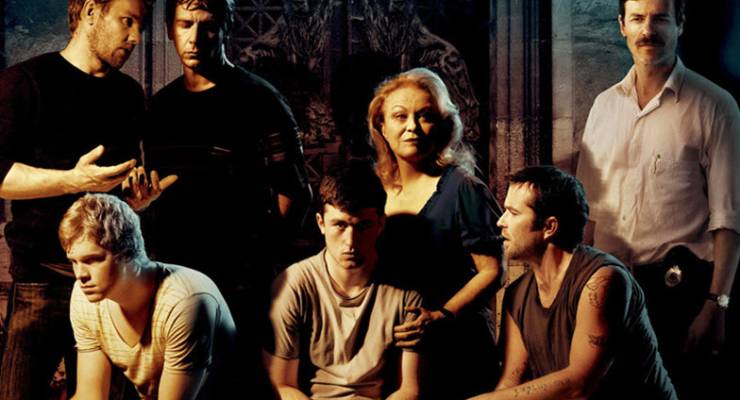
Sacred Cows is a series dedicated to overrated cultural artefacts and the more deserving ones we’ve lost sight of in their shadows.
This week, David Latham makes the case against the 2010 film Animal Kingdom.
If triangles had a God, they would give him three sides.
— Charles de Montesquieu
As the French philosopher Charles de Montesquieu noted, it’s not easy to conceive of our world in images that aren’t already familiar to us. David Michôd’s 2010 film, Animal Kingdom, is a film inspired by cultural sources that we’re conversant with, but unfortunately these influences — notably a hackneyed “study” of Australian criminals and working-class life — and some weak plotting present significant issues in the film.
Like Rowan Woods’ The Boys, which was based upon the Anita Cobby murder, Animal Kingdom is inspired by real-life events — the Melbourne crime family the Pettingills and the Walsh Street police shooting. But despite the Byzantine and potentially thrilling elements of that case, Animal Kingdom is relatively uncluttered by plot complications, or much in the way of a story engine. Michôd chose instead to make this film a sort of study of a crime family, with particular focus on the character of the film’s antagonist and alpha male eldest brother “Pope” Cody (Ben Mendelsohn).
Michôd is not only the director and scriptwriter of Animal Kingdom, but comes from an acting background. And it shows here. Animal Kingdom is a film that’s somewhat sparse in dialogue and relies to a large degree on atmospherics. The palette is dark and it feels at times that the actors are working overly hard on performance; on pulling off a convincing characterisation of a working-class crim.
The brutalist Australian crime tableau has some very strong contenders for authenticity and engagement, including the fine television miniseries Blue Murder; the stylised but mesmerising Chopper, which managed to convey character and sociopathy alongside a well-structured plot; and perhaps the exemplar of the menacing, realist Australian crime film experience, David Williamson’s The Removalists, which bears the audience into disturbingly close proximity with latent violence against the backdrop of a silent ticking menace.
It’s hard to understand where Animal Kingdom sits in terms of genre because it fails the test of plot-driven tautness required of a crime drama, nor does it provide any particularly illuminating insights into the characters, just some surface effects that signal malfunction.
In terms of originality, it follows many of the conventions of The Boys — a sociopathic older brother, chastened siblings, an enabling mother, absent father, the home as a house of horrors, status and sexual anxiety being at the heart of male violence. Maybe these are just real-life factors surrounding a crime family. But what might have made this film more disqueiting would have been some levity; moments when we might uncomfortably find ourselves identifying with ogres, or discovering that ogres aren’t always so.
But the biggest issue for this film is that the protagonist is docile, a blank space. The school-aged Josh (James Frecheville) or “J” ends up moving into the Cody home with his grandmother and violent uncles after his mother dies of a heroin overdose at the start of the film. His reaction to his mother’s death is cavalier, but not in a spooky or affecting way. Through the movie he fails to drive the story forward in plot or emotion. His coup de grace comes at the film’s conclusion but for 99% of the film he’s a pure spectator, an inert block. Too much is dissipated waiting for the one-time pay-off.
The character at the centre of the film is clearly Pope, but he doesn’t arrive until 17 minutes in. Up to that point it appears that Pope’s friend and accomplice Baz (Joel Edgerton) is the protagonist, but he’s killed minutes later with no sense of comradery having been established. What’s at stake in this film is hard to fathom.
Animal Kingdom is a realist crime drama but with no heart, not even a dark one.
Disagree? Email your comments and responses to boss@crikey.com.au.








I’ve been prompted to watch, often for the first time, other movies you’ve given the once over but not this one.
Thanks but no thanks – life is too short for something so bleak.
This was a bloody good film! With incredibly talented actors and a very surprising end! I disagree strongly with your assessment David Latham.